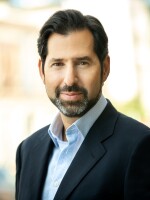The publisher who fired three journalists at a major Spanish-language newspaper in Miami for conflicts of interest lost his own job Tuesday after acknowledging the scope of the scandal was greater than previously disclosed.
Until Tuesday, Jesus Diaz Jr. was the publisher of El Nuevo Herald and its sister paper, The Miami Herald. Diaz fired the reporters last month for accepting payments from Radio Marti or TV Marti. Both are U.S. government broadcasters with the mission of undermining Cuban leader Fidel Castro's rule.
Diaz revealed Tuesday that a total of nine Nuevo Herald journalists had been involved, and that he was quitting as publisher after just 14 months.
"The last couple of weeks have been embarrassing for the paper, a paper that has a tremendous legacy of fine journalism," says Carl Hiaasen, the Miami Herald's renowned columnist. "And I just think that somebody had to go."
The pressure building on executives at both newspapers was excruciating. The Miami Herald broke the initial story about the three El Nuevo writers. Some Cuban-American activists expect the Spanish-language paper to oppose Castro openly.
Sergio Bendixen, the president of a Miami-based firm that gauges Latino public opinion, says their subsequent firing caused an uproar among some Cuban-Americans.
A few weeks ago, Hiaasen wrote a column praising his bosses for standing up to the pressure -- and also making light of the situation.
He jokingly took this line: "Hey, where's my check? I've been saying mean things about Castro for decades, and nobody's ever sent me a dime."
But many subscriptions to the paper had been canceled, and Hiaasen found the Herald had no interest in further inflaming tensions with angry Cuban-Americans in South Florida.
"I was told that my column was going to be fuel on the fire," Hiaasen tells NPR. "My response was, 'Who cares?' Since when do I worry about what the circulation numbers are? That's a problem with the business side."
He adds, "When they told me my column wasn't going to run, my response was, 'You'll have my resignation in the morning.'"
Ultimately, after his threat, the column ran. Through a spokeswoman, Diaz declined to comment.
The two papers function largely independently of one another. Bendixen says El Nuevo Herald operates more like a partisan Latin American newspaper than a typical American daily that proclaims its objectivity.
"The Cuban community in Miami is not particularly objective in terms of the battle against Fidel Castro," Bendixen says. "There's only one side to that argument."
In a statement Tuesday, Diaz acknowledged that several journalists credibly claimed to have been given permission by editors to appear on Marti. Bendixen says that eroded Diaz's initial stand.
"It then became obvious that it was management at the paper that had really not made the rules clear to the reporters," Bendixen says.
The fired reporters were given their jobs back because, Diaz wrote, ethical standards were not clearly articulated within the El Nuevo Herald newsroom. Columnist Hiaasen says journalists at The Miami Herald would never have been allowed to accept money from the government -- but that reporters at El Nuevo Herald were operating in a different world.
"You're either the voice of the free press, or you're the voice of the government," Hiaasen says. "You aren't the voice of both."
Both papers were part of the Knight-Ridder chain, but were purchased by the McClatchy Company this year.
Executives at the papers did not respond by deadline to several requests for comment.
Copyright 2022 NPR. To see more, visit https://www.npr.org. 9(MDAzMjM2NDYzMDEyMzc1Njk5NjAxNzY3OQ001))






